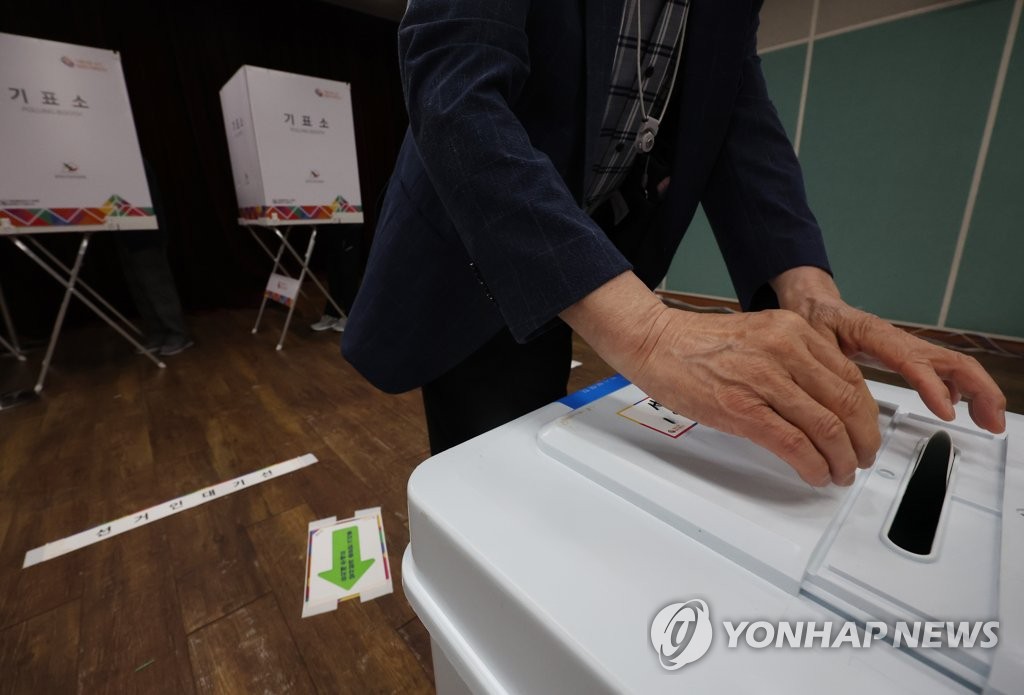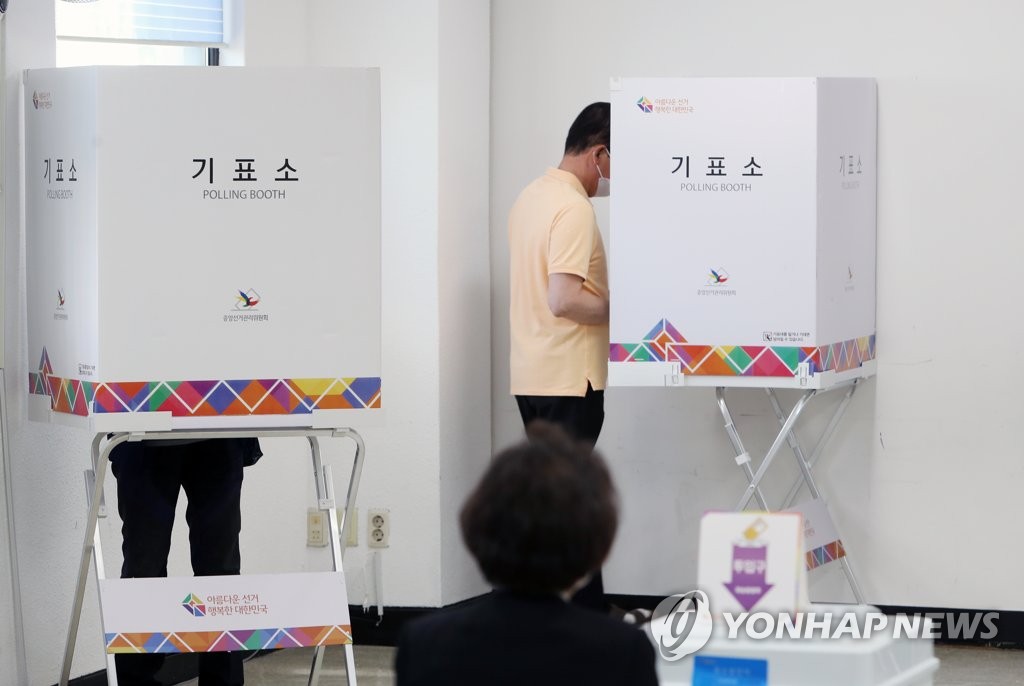- S. Korea unveils first graphic cigarette warnings
- US joins with South Korea, Japan in bid to deter North Korea
- LPGA golfer Chun In-gee finally back in action
- S. Korea won’t be top seed in final World Cup qualification round
- US men’s soccer misses 2nd straight Olympics
- US back on track in qualifying with 4-0 win over Guatemala
- High-intensity workout injuries spawn cottage industry
- CDC expands range of Zika mosquitoes into parts of Northeast
- Who knew? ‘The Walking Dead’ is helping families connect
- California Assembly OKs highest minimum wage in nation
Early voting for local elections kicks off
South Koreans headed to the polls for early voting Friday for next week’s local elections and parliamentary by-elections that can significantly strengthen or undermine the mandate of the new government of President Yoon Suk-yeol less than a month after its launch.
Eligible voters can cast ballots at 3,551 polling stations nationwide from 6 a.m. to 6 p.m. until Saturday, according to the National Election Commission (NEC). COVID-19 patients and those in quarantine will be able to vote from 6:30 p.m. to 8 p.m. only on Saturday.


A voter casts his ballot at a polling station in Seoul on May 27, 2022, the first day of two-day early voting for the June 1 local elections and parliamentary by-elections. (Yonhap)
On the first day of the advance voting, turnout came to 10.18 percent, according to the NEC. The rate was higher than 8.77 percent recorded on the first day of early voting for the 2018 local elections but was lower than 17.57 percent logged during the advance voting for the presidential election in March.
The turnout for seven parliamentary by-elections, held concurrently with the local votes, was 10.62 percent, the NEC said.
More than 44.3 million people are eligible to vote in this year’s local elections.
Many candidates already cast their ballots. President Yoon and Prime Minister Han Duck-soo also voted early at polling stations in Seoul.
Up for grabs are 17 metropolitan mayors and provincial governors, 226 lower-level council heads, as well as 779 seats in provincial and metropolitan councils and 2,602 in lower-level local councils.
This year’s elections have drawn greater attention as seven National Assembly seats are also at stake, with political heavyweights, such as former presidential candidates Lee Jae-myung and Ahn Cheol-soo, throwing their hats into the ring.
Both the ruling People Power Party (PPP) and the main opposition Democratic Party (DP) have been calling on people to participate in early voting, claiming that high early voting turnout can ensure victory in the June 1 elections.
A survey by Gallup Korea showed 69.8 percent of the people answering they will definitely vote in the upcoming elections. Of them, 30.3 percent said they intend to cast ballots during the early voting.
Recent polls showed the PPP taking leads in most big races, except those in the liberal Honam region, the home turf of the DP. The party hopes it can extend the momentum of the presidential election victory and win more than half of 17 gubernatorial and mayor posts.
The conservative party believes Yoon’s summit with U.S. President Joe Biden and recent North Korea provocations can be helpful for its campaign, especially among those seeking stabilized operation of the Yoon administration.
The DP, which controls a majority in the National Assembly, is looking to recover from the March 9 presidential election defeat and expand its power across the nation to keep the Yoon government in check.
The liberal party, which scored a landslide victory in the 2018 local elections, has been promoting that most incumbent local government heads are from the party and that they should continue their jobs.
The DP, however, is worried that a recent internal feud, which was sparked by the DP co-interim chief Park Ji-hyun’s call for a sweeping reform of the party, and a sexual misconduct case involving one of its lawmakers may undermine its chances in the elections.
Both parties view the capital area, where half of the country’s population resides, as a key battle ground.
The Seoul mayoral election has been mainly a two-horse race between current Mayor Oh Se-hoon of the PPP and former DP Chairman Song Young-gil. Recent polls showed Oh leading Song by a wide margin.
The race for Gyeonggi governor has been largely between former lawmaker Kim Eun-hye of the PPP and former Finance Minister Kim Dong-yeon of the DP. Recent polls showed that the two were running neck and neck.











